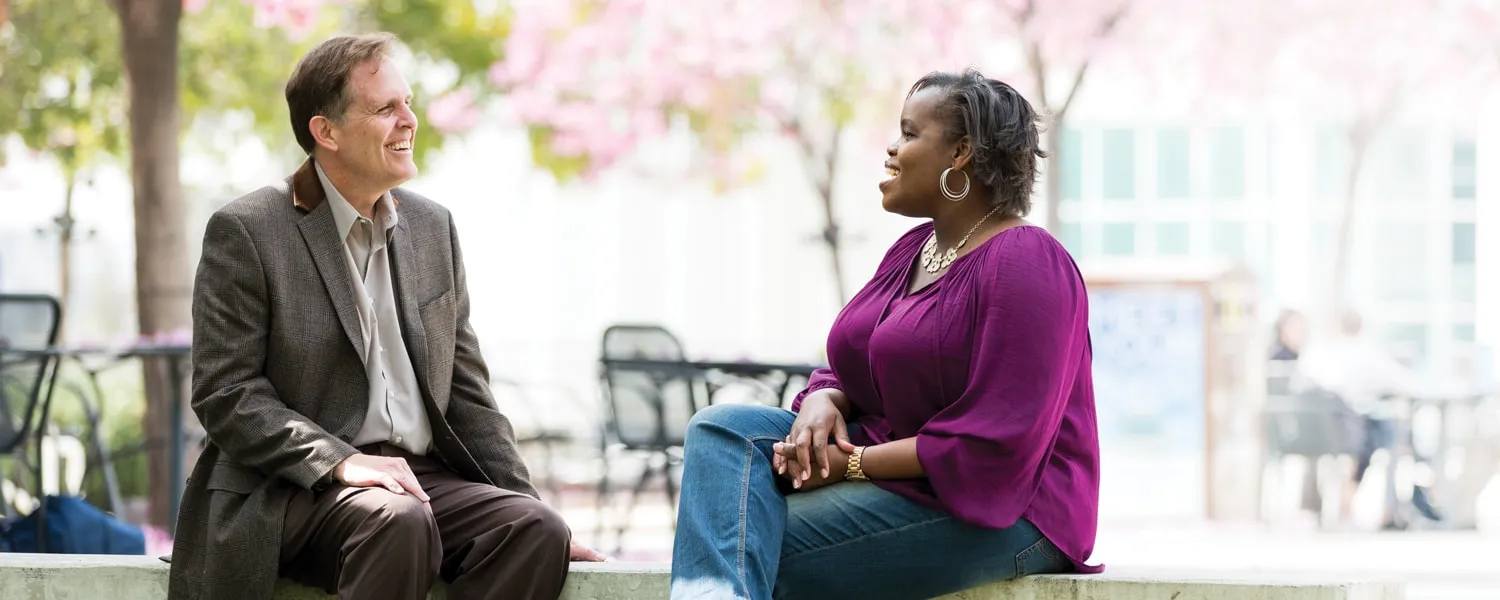- Home
- >
- APU Articles
- >
- News Article
Mentoring: A Journey of Compassion and Kind Curiosity
August 01, 2016 | Written By T. Scott Bledsoe, Psy.D.

Charity began her traineeship at Emmaus Road Christian Counseling in Covina, and we met monthly to discuss her therapy with college-age students and also the dual demands of practicum and graduate schoolwork. Her clients often suffered from low self-esteem, and I worked with Charity to develop positive interventions in this area. “Regardless of all your technical training,” I once told her, “your most powerful intervention is yourself.” This opened a door to many spiritual conversations about God and His power to guide Charity in her work. We also discussed my role as a male professor mentoring a female student, which helped bridge the gender differences between us. As I watched her develop into a more confident therapist, I realized that God was working through me, and I cherished the opportunity to witness Charity’s progress. At the end of her practicum experience, she thanked me for my compassion and “kind curiosity,” which she explained as “gently inquiring me to think on a deeper level. It was helpful in opening new pathways for understanding.”
After graduating from APU, Charity acquired an internship position at Phoenix House, a treatment center for emotionally disturbed adolescents and their families. She felt challenged by the broad range of clients with whom she worked, and we often discussed issues of diversity that impacted her counseling relationships. “As a single, college-educated African American woman,” she told me, “I sometimes felt overwhelmed by the differences—race, age, socioeconomic status, and more—between my clients and me.” When working with one Hispanic client with a third-grade education and five kids, for example, Charity confided, “I was afraid of not truly understanding her story and the hopelessness she experienced.” I encouraged Charity to talk with the client about their cultural differences and any barriers that might hinder therapeutic progress. By doing this, the client felt honored to share her concerns about racial differences, which resulted in a stronger therapeutic bond between the two. “Instead of just seeing therapy solely in terms of client symptoms,” she said, “Scott taught me to bring culture into the room in a powerful way.” Soon, Charity exhibited more confidence in her ability to work with clients from diverse backgrounds.
During her time at Phoenix House, Charity thought deeply about issues of low self-esteem that impacted many of her clients. Using a card game format, she designed an interactive counseling game to promote client strengths and positive affirmation with creative questions to build self-esteem. She told me that the game was born partly out of her initial insecurities about applying to graduate school and making a significant career change, and partly out of her goal to incorporate some of the learning experiences that came from our mentoring relationship. “In that way, it was very prevalent to my own journey as a clinician.” Her efforts caught the attention of the Guidance Group, a premier source for counseling games and resources, and they eventually agreed to publish her work. The game, titled “Yes I Can . . . Feel Good about Me,” is set for worldwide distribution in June.
Meanwhile, Charity serves as a licensed marriage and family therapist, has a private practice in Valencia where she specializes in providing psychotherapy for teens and young adults, and still works at Phoenix House in the quality assurance department. She has turned her previous struggles with self-esteem and diversity into powerful therapeutic tools, resulting in countless client success stories. Our mentorship, which continues through periodic meetings, has stimulated my ability to promote self-confidence and diversity awareness with my own therapy clients; and in my Cultural Diversity class, I am able to teach students important lessons about honoring differences in the therapy environment. As Christ has walked alongside me with compassion and kind curiosity, I’ve been humbled to share these qualities in my relationship with Charity. I have watched Charity grow into a fine clinician and entrepreneur and am excited to see what God has in store for her.